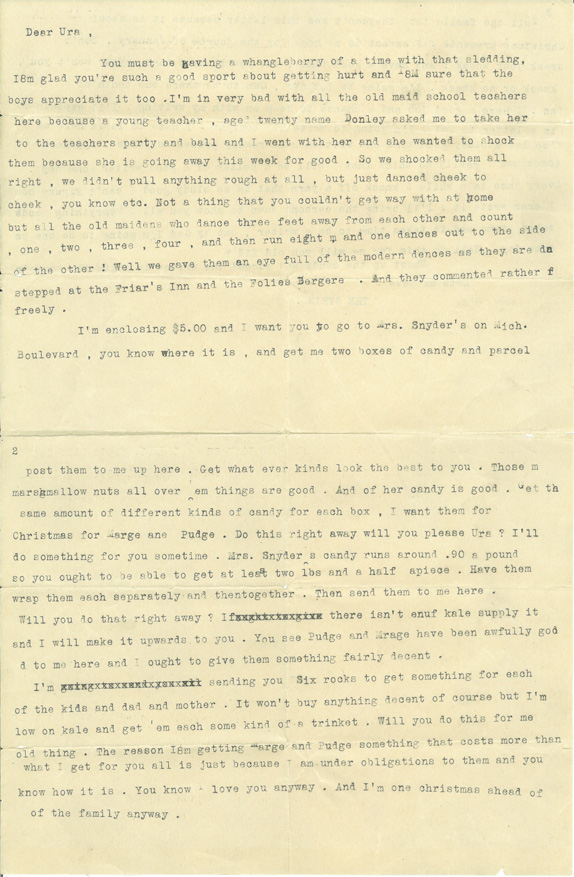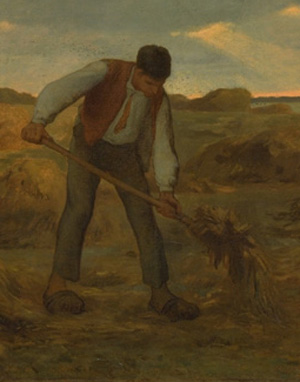Let's say it together: Facial-recognition technology is Girlfriend Who is Crazy About Big Thingsa dangerous, biased mess.
We are reminded of this obvious fact again with the news Friday that an innocent man, despite not looking like the perpetrator at all, was arrested last year after being falsely identified by faulty facial-recognition tech.
This is the second known case of facial recognition software directly leading to the arrest of an innocent man. It's something privacy advocates fear will be a growing trend unless drastic action is taken to stop this technology in its tracks.
Michael Oliver, then 25, was charged with a felony for supposedly grabbing a phone from a car passenger and throwing it, reports the Detroit Free Press. Except, of course, it wasn't Oliver. With facial-recognition technology's demonstrated bias when it comes to identifying the faces of Black people (and BIPOC in general, and women, and old people, and young people...) it should come as no surprise that both Oliver and the actual phone-grabber are both Black.
The similarities stopped there, however. As the Detroit Free Presspoints out, Oliver's arms are covered in very visible tattoos. In the video, the man who grabbed the phone is obviously tattoo-less. Still, Detroit Police arrested him anyway.
Dan Korobkin, legal director of the ACLU of Michigan, released a statement condemning both the arrest and Detroit police's use of facial-recognition technology.
"Lawmakers must take urgent action to stop law enforcement use of this technology until it can be determined what policy, if any, can effectively prevent this technology's harms," the statement, emailed to Mashable, reads. "At the same time, police and prosecutors nationwide should review all cases involving the use of this technology and should notify all individuals charged as a result of it. This technology is dangerous when wrong and dangerous when right."
Oliver's case, while upsetting enough on its own, isn't even unique — a fact that makes it all the more terrifying. Late last month we learned that Detroit police arrested a (yes) Black man by the name of Robert Julian-Borchak Williams after facial-recognition software sloppily matched his driver's license photo to blurry surveillance video.
"I guess the computer got it wrong," a cop reportedly told Williams after he had already spent 30 hours in jail.
Detroit authorities, for their part, insist that this was a one-time — er, two-time — mistake, and that it could never happen again.
SEE ALSO: Congressman calls out Amazon's 'performative' facial-recognition moratorium
“As a result of these two cases, we have a more stringent protocol in facial recognition cases," Wayne County (the county in which Detroit falls) prosecutor Kym Worthy told the Detroit Free Press. "The cases will be reviewed during the warrant charging phase, prior to the preliminary examination, and again when the case is bound over to the Circuit Court in any case where facial recognition has been used as an investigative tool."
There, don't you feel better? The next time a person is arrested for a crime they didn't commit based on some garbage facial-recognition algorithm riddled with errors, authorities will at least have gone through a more stringent protocolfirst.
Topics Cybersecurity Facial Recognition Privacy
(Editor: {typename type="name"/})
 NYT Connections hints and answers for April 14: Tips to solve 'Connections' #673.
NYT Connections hints and answers for April 14: Tips to solve 'Connections' #673.
 Paul Hornschemeier on ‘Life with Mr. Dangerous’ by Nicole Rudick
Paul Hornschemeier on ‘Life with Mr. Dangerous’ by Nicole Rudick
 Helen Schulman on 'This Beautiful Life' by Brian Gresko
Helen Schulman on 'This Beautiful Life' by Brian Gresko
 Poem: Remembering the Children of First Marriages by Lucy Tunstall
Poem: Remembering the Children of First Marriages by Lucy Tunstall
 Best rope light deal: Save 25% on Lepro N1 AI Smart RGB LED Strip Lights
Best rope light deal: Save 25% on Lepro N1 AI Smart RGB LED Strip Lights
Best speaker deal: Save $30 on the JBL Clip 5
 SAVE $30: As of May 13, the JBL Clip 5 is on sale for $49.95 at Amazon. That's a 38% saving on the l
...[Details]
SAVE $30: As of May 13, the JBL Clip 5 is on sale for $49.95 at Amazon. That's a 38% saving on the l
...[Details]
A Tiny Republic; Golden Eras by Lorin Stein
 A Tiny Republic; Golden ErasBy Lorin SteinSeptember 9, 2011Ask The Paris ReviewWhy is it that when I
...[Details]
A Tiny Republic; Golden ErasBy Lorin SteinSeptember 9, 2011Ask The Paris ReviewWhy is it that when I
...[Details]
Document: Ernest Hemingway to Ursula Hemingway by Ernest Hemingway
 Document: Ernest Hemingway to Ursula HemingwayBy Ernest HemingwayOctober 3, 2011CorrespondenceImage
...[Details]
Document: Ernest Hemingway to Ursula HemingwayBy Ernest HemingwayOctober 3, 2011CorrespondenceImage
...[Details]
Poem: Episode by Jennifer Michael Hecht
 Poem: EpisodeBy Jennifer Michael HechtAugust 25, 2011PoetryJennifer Michael Hecht.It’s Thursday, as
...[Details]
Poem: EpisodeBy Jennifer Michael HechtAugust 25, 2011PoetryJennifer Michael Hecht.It’s Thursday, as
...[Details]
The Made in America iPhone: How much would it cost?
 President Donald Trump's tariff policy has thrown the global economy into crisis, with the stated go
...[Details]
President Donald Trump's tariff policy has thrown the global economy into crisis, with the stated go
...[Details]
Constructive Abandonment by Michael Dumontier and Neil Farber
 Constructive AbandonmentBy Michael Dumontier and Neil FarberSeptember 8, 2011LookMichael Dumontier a
...[Details]
Constructive AbandonmentBy Michael Dumontier and Neil FarberSeptember 8, 2011LookMichael Dumontier a
...[Details]
Paul Hornschemeier on ‘Life with Mr. Dangerous’ by Nicole Rudick
 Paul Hornschemeier on ‘Life with Mr. Dangerous’By Nicole RudickJuly 18, 2011At WorkForlorn Funnies,
...[Details]
Paul Hornschemeier on ‘Life with Mr. Dangerous’By Nicole RudickJuly 18, 2011At WorkForlorn Funnies,
...[Details]
Paul Hornschemeier on ‘Life with Mr. Dangerous’ by Nicole Rudick
 Paul Hornschemeier on ‘Life with Mr. Dangerous’By Nicole RudickJuly 18, 2011At WorkForlorn Funnies,
...[Details]
Paul Hornschemeier on ‘Life with Mr. Dangerous’By Nicole RudickJuly 18, 2011At WorkForlorn Funnies,
...[Details]
NYT Connections Sports Edition hints and answers for April 17: Tips to solve Connections #206
 Connections: Sports Editionis a new version of the popular New York Times word game that seeks to te
...[Details]
Connections: Sports Editionis a new version of the popular New York Times word game that seeks to te
...[Details]
At the Bazaar by Alexandra Pechman
 At the BazaarBy Alexandra PechmanSeptember 26, 2011Fashion & StyleRalph Gibson, Caroline Winberg
...[Details]
At the BazaarBy Alexandra PechmanSeptember 26, 2011Fashion & StyleRalph Gibson, Caroline Winberg
...[Details]
NYT mini crossword answers for May 12, 2025

Wells Tower, DBC Pierre, and Tobias Wolff by Chris Flynn

接受PR>=1、BR>=1,流量相当,内容相关类链接。